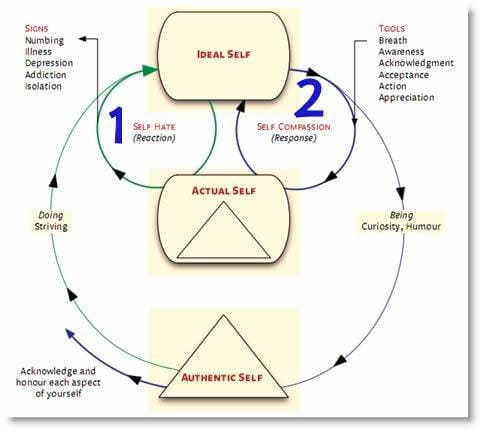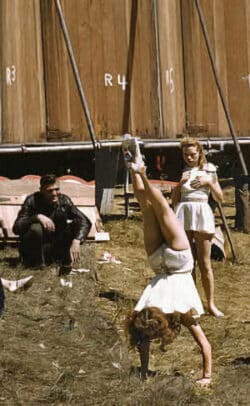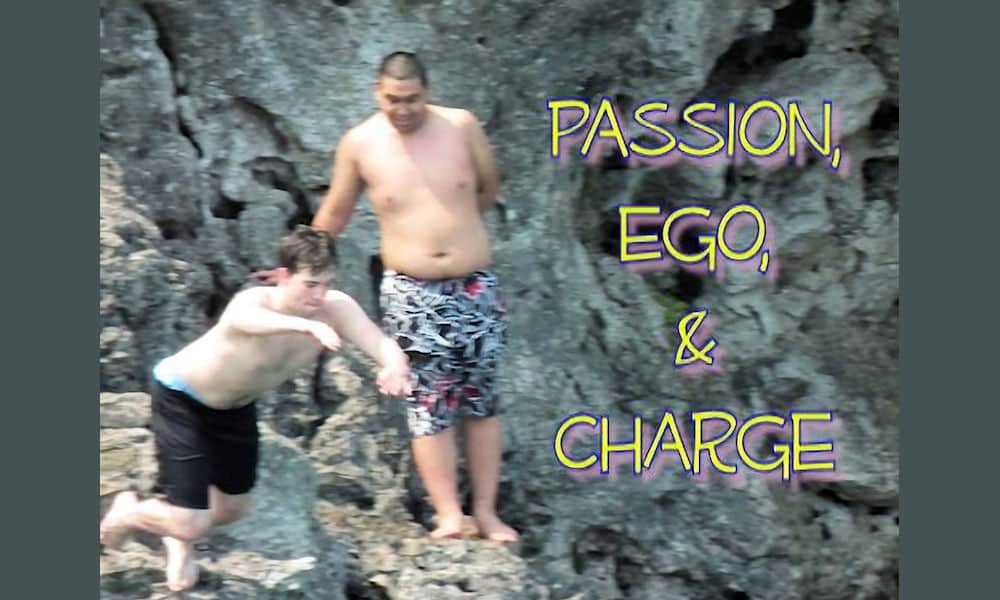Passion Ego and Charge — Because we are conditioned, we view most things through the lens of our culture — this is the job of the ego — to help us conform.
Passion and charge exist in the body and pull to mindless pleasure (charge) or to depth, purpose, and meaning. Here’s a bit of information on how to discover passion ego and charge in your life.
Understanding passion ego and charge is crucial for personal growth and relationships.

Psst!! Hey!!!
** Want more great writing designed to help YOU to shift your behaviour?
** Want to learn how to find, build or deepen your principal relationship?
** Want to know more about Zen living and being?
Check out Wayne’s books! (amazon link)
Or, check them out right on our site.
Here are a couple of questions, regarding charge, (and the importance of sexual attraction) passion and ego! I do love questions! Keep them coming!
Consider how passion ego and charge interact in your daily life. Reflecting on these dynamics can enhance your understanding of personal interactions.
Question # 1:
I get your discussion with regard to finding passion in your career path and for the most part in your personal life. The part I get stuck with is with finding a life partner. I was searching for a life partner on a dating site. You meet several men who seem to have similar values and interests when you read their profile and talk with them. Then you meet them and you don’t get the “charge.”
As many write on the site, “let’s meet and see if there is “chemistry” and go from there.” Here is my question: When looking for long term love, does the sexual charge with a partner come with time? If I am not physically attracted to the guy in the early stages of dating him, will the desire to be sexually intimate ever come?
Look forward to reading what you have to say, Wayne. I am sure I am not the only one having this experience.
Michele
Question # 2
Exploring the relationship between passion ego and charge can provide clarity on emotional responses and motivations.
I was looking up Passion and Ego in The Relationship Garden. Of course, I thought it would be defined in one paragraph like my medical texts and simplify the two right off the bat, and what world was I in thinking that. Nonetheless I’ve come across some great reading/reminding again before my eyes got too heavy to read in the tub and drop the book in the water.
I digress… Since you are on the topic of Passion, it might be an opportunity, if you don’t already have it planned, to differentiate, compare or present similarities of Passion and Ego. Does ‘good/healthy’ Ego support Passion, or are they the same? But probably I am asking you if you could comment on that, as opposed to it ‘being an opportunity’.
Wendy
So, these two questions, believe it or not, are somewhat related.
The latter question is somewhat “in-house,” as you need to know that “The Relationship Garden” is a book by Ben Wong and Jock McKeen. And I can’t even answer the question directly, as a friend borrowed my copy.
In many of my blog posts, I talk about how we are conditioned by our upbringing.
In general, we could say that our parents installed our egos. Parents teach us to fit in to our tribes and cultures. The ego, in this sense (and not in the Freudian use of the term) is the cheerleader / stern taskmaster.
The ego voice boils down to 2 messages:
- 1) If you try harder, you can be perfect, and
- 2) You idiot! You screwed up again! But… (and return to message 1.)
The illustration, below, is the work of Ben and Jock, and describes this ego path — it is the circle I have labelled # 1. (self-hate)
The circle to the right of it, labelled # 2 (self-compassion) is what I would call passion . Ben and Jock call this the “Renew Cycle” in The New Manual for Life.

Just FYI, Freud’s structure of Id, Ego, Super Ego is a clinical / rational model. In Freud’s world, there was no place for things like “purpose” or “vocation,” as those implied a faith position. His main argument with Jung was over Jung’s instance that there was some other spiritual, purposeful element to be taken into account.
But I don’t want to get stuck in semantics
I’m going to remove the Ego word now and replace it with “critical voice.” The Critical Voice, for most, is the dominant sound in the mental theatre. The key to remember is that (as you see in the diagram, # 1) the critical voice is “pitching” perfection as is determined by the ideal state. The upward (green) arrow from Actual to Ideal says, “Try harder.” The downward green arrow says, “You screwed up.” If we don’t learn to set this voice aside, we’re doomed to repeat this endless cycle.
The Ideal Self

The Ideal Self is what a perfect human being would look like, as defined by the social structure we belong to. In other words, each of us carry around a picture in our heads, implanted there by society and family, that we compare ourselves to. Always unfavourably.
Because it is a construct (there has never been an Ideal Person…) it’s a bit like comparing a real apple to an imaginary one. If you make the imaginary one shiny enough, no real apple can compare.
Except, imaginary and ideal do not exist!
The Passion or Renewal cycle stands as the “opposite spin.” This cycle or path is about plumbing the depths of The Authentic Self — and the material in there is equal to Jung’s Shadow Side. It’s the material that is unexplored, and the material that our patents and culture taught us to repress.
A Favourite story
I once had a client who wanted to paint. Her parents were doctors, and refused to let her go there, even to the extent of not letting her have art materials, throwing out what she made at school and brought home.
She rebelled by barely passing, becoming a secretary, and having a lot of sex.
Then, in her mid-twenties, she painted a quite amazing painting, and then met me. We talked about this, and she went off to study art. Her artist wasn’t gone; she was merely stuck in the “bardo” of the Shadow. She chose to resurrect the artist by… wait for it… finding the artist in her Shadow, then adding her to her Actual Self, by PAINTING!
She learned to stand up to the pull of “what everybody knows,” stopping the attempt to fit in by conforming to the Ideal, and endlessly exploring the deep pool of the Shadow — the Authentic Self.
I call this living with passion.
To the questions:
Question # 1) relationships, charge, and passion.
Many people are in relationships that seem to lack charge, or strong sexual attraction.
One woman I know worked through the List of 50 exercise from my book, Find Your Perfect Partner — it’s a great way to find a partner that “fits.”
She was puzzled that she never wants to rip his clothes off (otherwise known as sexual charge)
If you talk to couples who have had a positive, long-term relationship, you’ll discover a common theme, and that is that there is a ton of passion and not necessarily a ton of charge. Charge diminishes over time, as intimacy grows, because charge requires objectification.
I would go as far as to say that huge charge is always a sign of impending great sex, but that the probability of a deep, intimate relationship emerging is almost zero.
Charge is charge, while intimacy and passion are the basis of deep relating.
What I’m saying in reply to the first question is this: being turned on by someone is indicative of nothing beyond “chemistry.” Yet, and this is how this fits with the ego question, our cultures (movies, books, etc.) promote sexual charge, and “falling head over heels” as a true marker of a relationship.
Please note! There is a near 50% divorce rate, and we all know scores of others whose “chargy” relationship ended up dead in the water. Sexual charge is a marker for good sex (and perhaps, chemically, we’re picking up the pheromones of a good breeding pair…)
I certainly have had some of those kinds of relationships when I was younger, so I get it. When I finally decided that I wanted a real relationship, I dragged myself kicking and screaming up from my genitals and into my heart. There, I found what, in September, was 40 years and counting of passion and joy.
I would therefore advise simply hanging out with the person, getting to know him, dating, exploring. Approach sex as a fun game and experiment, without letting yourself slide into stopping yourself because you initially aren’t bowled over by charge.
You might choose to create an Intimacy Project to explore passion and eroticism through talk and touch. This makes our sexual nature into something more Tantric, significant, and “spiritual.” This puts sex into another niche — a method for deep self-knowing, as opposed to an indicator of “lifelong compatibility.”
And if, after dating for a while, you STILL are uninterested in sex with this person, you then might choose to move on. The odds are, however, that the closer and deeper you go with him, the more “interesting” you will find him, and an altogether more whole sexual experience will open up.
Question 2: Ego and Passion
You might think of ego and passion as oil and water. (Different circles, on the above chart.) Ihe ego is always promoting conformity, which is the opposite of passion. The “voice of passion,” often the quiet voice, is beckoning toward diving into uncharted territory, and living out “stuff” that society is uncomfortable with.
Passion, by definition, is a bit scary
It starts in the Shadow, and even when we bring it back with us, and begin to live from it, there is still an edge to it. If one’s passion becomes boring and predictable, it has crossed over into the ego side, and becomes a part of the “norm.” (This is why artists stagnate if they are not developing and extending their art.)
Passion is the right hand loop and is always the “Road Less Traveled.” It stands as an alternative to ego.
We teach that the ego voice is not “bad” or “wrong.” Many people spend their lives trying to repress the ego voice. They are the people who abandon meditation because they can’t quiet their mind. Of course not. True meditation is letting the voices be — not attaching to them.
Your ego voice will always provide the judgement and the whip to fit in. The passion voice will whisper, “Do your work, explore yourself (figuratively and literally) and dive into the scary stuff.”
The ego voice leads to a painful, battle-filled stasis, and the passion voice, to an uncomfortable, diving-filled exploration, and a constant flow and movement. They are two sides of the same coin. You just have to get over fearing being uncomfortable.
The question is: do you want to stay stuck believing what society preaches, stuck in odd relationships that go nowhere, OR do you want to risk sailing into the darkness, confronting your fear of falling over the edge of the Universe, and ending up in unexplored territory?
One is to stay at home and sigh, the other is to risk and move.
No net. No guarantee, other than an adventure enough to fill a lifetime.





